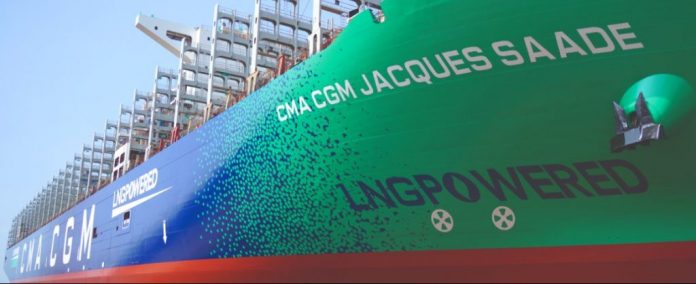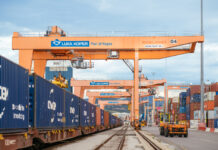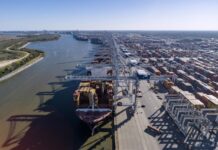
French operator CMA CGM is to invest heavily into the US market with new LNG-powered ships arriving later this year, a Zebox office opening in Washington and the company hiring a further 400 staff to help meet strong demand.
[s2If is_user_logged_in()]Speaking at the JOC’s virtual conference, TPM 21, chairman and CEO Rodolphe Saadé told attendees, including shippers, that the company will invest heavily and that this meant shippers will need to pay more for their services. That investment includes six LNG powered vessels will join the Transpacific trade by the end of this year.
There was little detail on where the 400 staff will be deployed or what innovation the latest Zebox office will work on, but the investment is there and the intention is to improve services to CMA CGM customers.
Saadé cautioned, however, that “Service comes at a price,” adding, “There needs to be an understanding that lines cannot lose money every year.”
However, Saadé also admitted that high prices demand a decent service and that the current service levels are well below expectations, due mainly to the exceptional circumstances of the Covid-19 pandemic.
Vessel delays, equipment shortages and rollover cargo is unacceptable for a premium priced product conceded Saadé, “We must make sure we offer customers a good service.”
Meanwhile one of the audience in attendance was Sea-Intelligence CEO Alan Murphy, who wrote, “Sea-Intelligence has today published the latest issue of our Global Liner Performance report, and Transpacific West Coast schedule reliability has plummeted to 13.8% in January 2021, while vessel delays have jumped to an average of 10.3 days.”
Saadé believes the industry’s reaction to the pandemic was shaped from past experiences, including the 2008 financial crisis. “It is true we have learnt from past mistakes and we have managed as an industry to look at it [the crisis] in a different way.”
He believes there was no point in deploying vessels when the demand was extremely low, “We were forced during Covid to cut services,” he said, however, he argues that the most important thing is that the has “shown it can adapt and is able to weather the storms.”
Nick Savvides
Managing Editor
[/s2If]
[s2If !is_user_logged_in()]Please login or register to read the rest of the story[/s2If]




